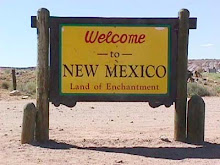"We must now discuss Christian freedom." - John Calvin, Institutes of the Christian Religion, 1536 edition, pg. 176.
You don't know how happy I was to read those words the other day.
As part of my year long celebration of John Calvin's 500th birthday on July 19th I have been reading from and about John Calvin. I had previously read the 1559 Institutes but wanted to compare Calvin's thought as a young man. What is remarkable is the fact that the Calvin of 1536 is very much the same man in 1559. I know that I have changed greatly, especially in theological matters, in the past 23 years, and especially since I was age 27, the age that Calvin was when the Institutes was first published.
The happiness that I express above was due to the fact that I have come to what I consider to be the most important part of Calvin's work, his treatise on Christian freedom. Truthfully, the past several weeks reading left me cold. Not that Calvin's argument against the errors of Roman Catholic sacramental system wasn't both excellent and important, it just wasn't that important to me. Having never been subject to that system as a Baptist, and possibly because we live in a post-counter-reformation, post-Vatican II world, I haven't lost much sleep worrying about sacramentalism.
Yet, it is because of the above that Calvin's material on Christian freedom is so important. The world he lived in was very much different, both politically and religiously than ours today. Men are still the same now as then, but the majority of Calvin's readers had no experience with the political and religious freedom that we have come to know today. Calvin's writings opened up new possibilities, leading to new ways of thinking and eventually to new forms of government. It is no exaggeration to call Calvin the "spiritual father" of America, so radical was his thought.
Maybe it is time, once again, for us to seriously discuss Christian freedom.
Who Needs to Hear Your Hard Words?
3 hours ago


No comments:
Post a Comment